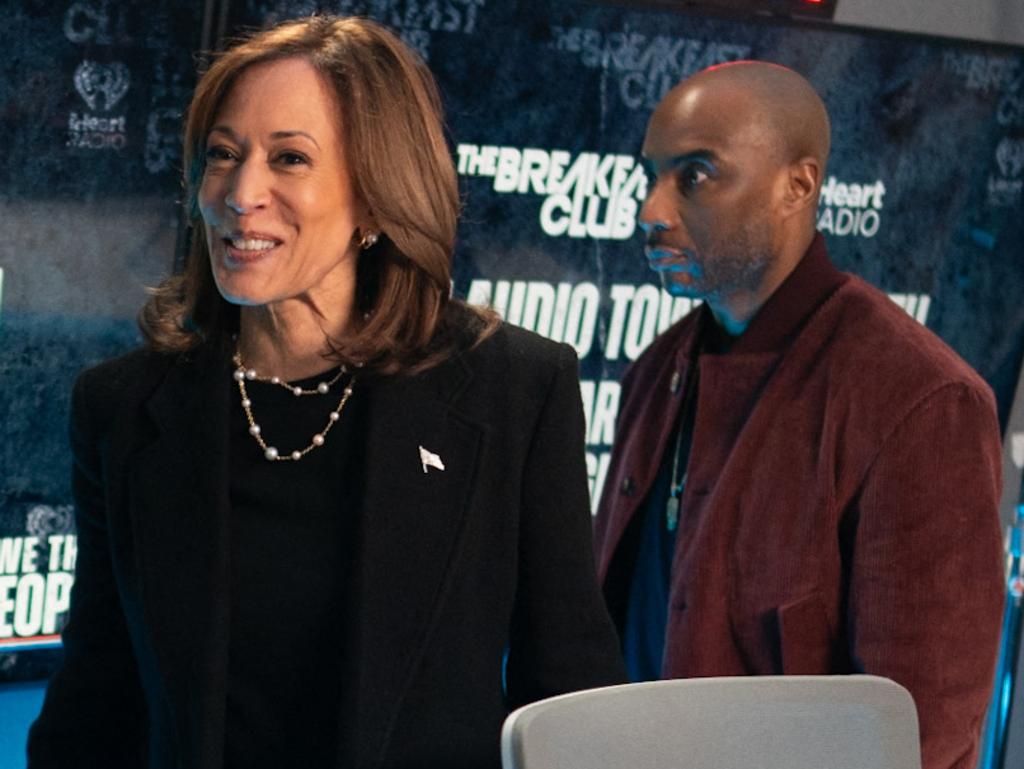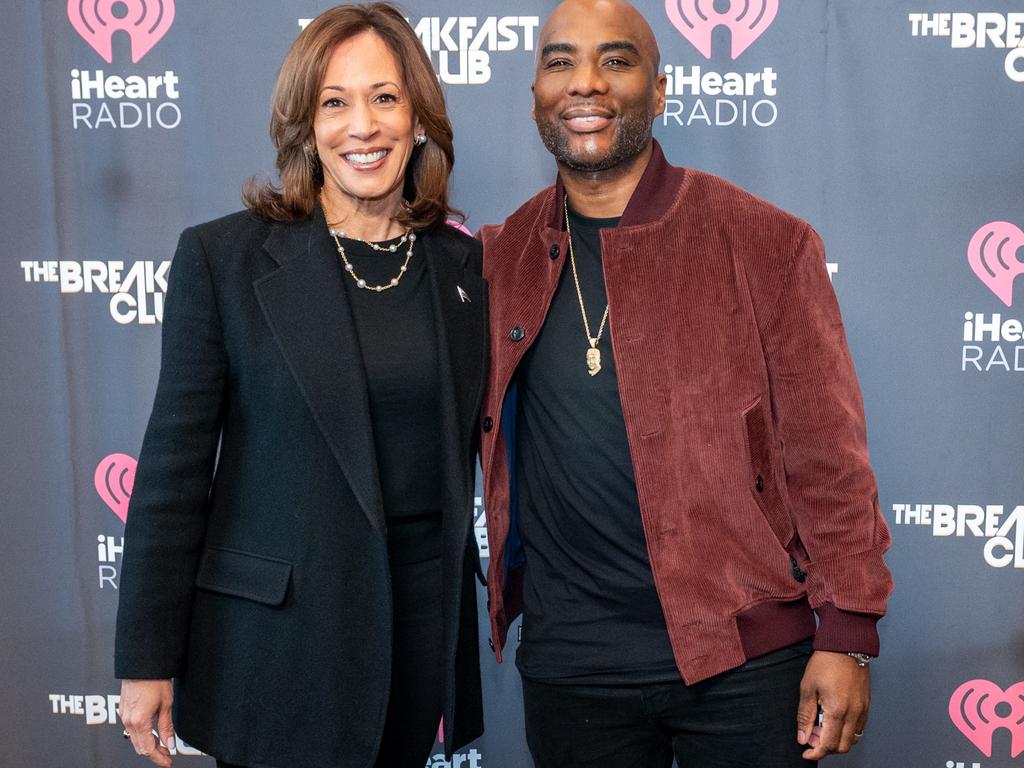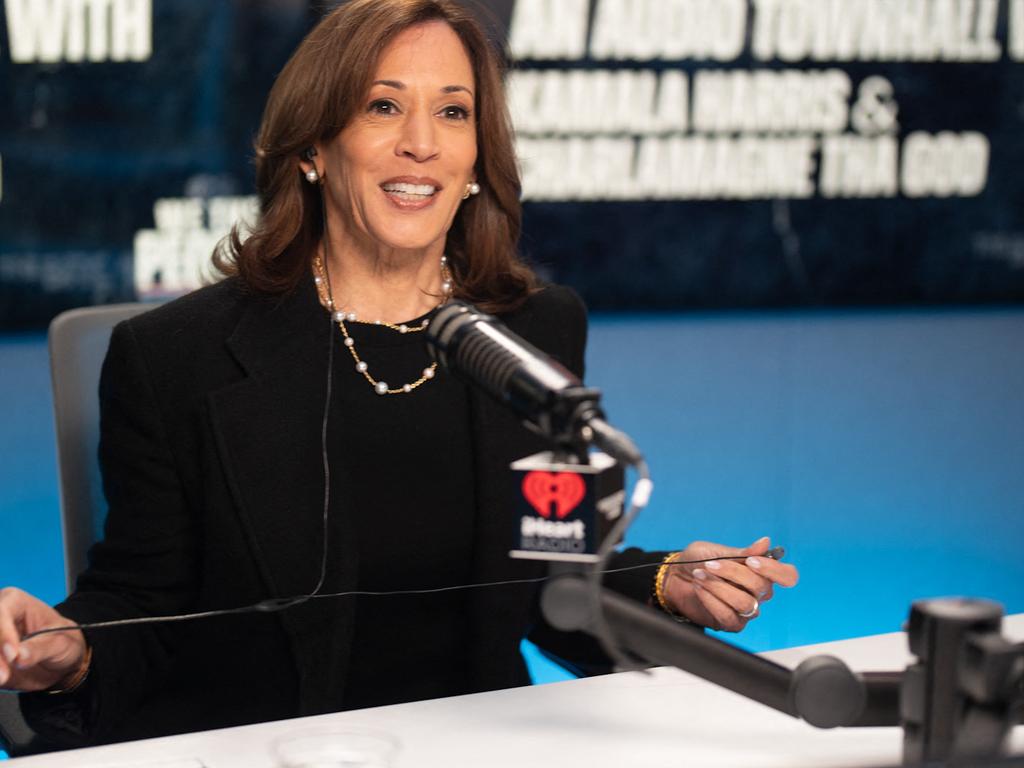
This article is more than
1 year oldRadio host Charlamagne tha God called out Vice President Kamala Harris for her “filibuster” of a listener’s question on reparations — and pressed her on doing “a lot of things wrong at the border” in a highly anticipated town hall focused on her appeal to black voters.
The popular radio host, whose real name is Lenard McKelvey, tried repeatedly and with little success to knock the 59-year-old Democratic presidential candidate off her talking points during her hour-long interview, which was carried on iHeartRadio’s website and streamed live on CNN.
“I try to be on time. Apparently I’m 40 seconds late,” Harris opened her only announced event of the day during a trip to Detroit — just 21 days before the Nov. 5 election.
“Well, you are black,” the host joked about her tardiness — before launching into a question about why Harris “come[s] off as very scripted — they say you like to stick to your talking points.”
“That would be called discipline,” Harris cooly replied — before proceeding to nimbly dodge a series of pointed questions from the host and guests.
“There are certain things that must be repeated to ensure that I have everyone know what I stand for and the issues that I think are at stake in this election. And so it requires repetition,” she insisted.

McKelvey pressed Harris hard on issues such as foreign aid to other countries, which former President Donald Trump, 78, has campaigned on restricting, on her past prosecuting marijuana offenders and her role as retiring President Biden’s point person on reducing illegal immigration, which instead surged.
When a listener expressed concern that Trump, who is vowing to mass-deport illegal immigrants, might “put anyone that doesn’t look white in camps,” Harris brought up the border.
“Yeah, so you’ve hit on a really important point and expressed it, I think so well, which is he is achieving his intended effect to make you scared,” Harris began, adding: “He prefers to run on a problem instead of fix a problem, and we got to call it out and see it for what it is.”
The host interjected: “But doesn’t the Biden administration have to take some blame for the border, though? A lot of the blame — because, I mean, the first three years y’all did get a lot of things wrong with the border.”
Harris pivoted into a lengthy recitation of campaign talking points, saying that “the first thing we dropped was a bill to fix the broken immigration system” — referring to legislation that would have provided a pathway to citizenship for nearly all illegal immigrants in the US, which Republicans said would prompt more to come without legal permission.
Border encounters hit record highs in each of the first three years of Harris’ role leading the federal efforts to reduce illegal immigration, before declining in recent months following a Biden order to restrict the processing of asylum claims.
Asked by a listener, “What’s your stance on reparations?” Harris gave her longest answer of the interview — declining to take a firm stance before giving an exhaustive account of her various economic policies.

“First of all, on the point of reparations, it has to be studied. There’s no question about that,” she said before pivoting to generally applicable policies.
“You’re going to keep going?” McKelvey asked at one point
“You caught that!” she said as she continued to do just that.
“OK, filibuster ma’am!” he cracked.
Moments later, Harris emphasised, “Everything I just talked about will benefit everybody.”
The interview featured a number of tense questions.
McKelvey at one point tore into Harris, who tweeted earlier in the day that black men should support her due to her support of marijuana legalisation, over the fact that she oversaw the conviction of more than 1,900 people for pot as San Francisco district attorney between 2004 and 2011.
“One of the biggest allegations against you is that you targeted and locked up thousands of black men in San Francisco for weeds. Some say you did it to boost your career. Some say you did it out of pure hate for black men. Please tell us the facts,” he said.
Harris did not directly address the many pot convictions on her watch while maintaining “I was the most progressive prosecutor in California on marijuana cases and would not send people to jail for simple possession of weed.”

In another exchange, a listener asked: “Why are we sending money to other countries when we definitely need it in our own country, for homeless, housing, resources for whatever — that is my determining factor, if I vote for Kamala or not?”
The host noted to Harris, “That’s one of the reasons [Trump’s] America first rhetoric resonates.”
“We can do it all,” she maintained.
Charlamagne tha God pressed, quoting Harris’ self-proclaimed favourite rapper Tupac as saying, “We got money for war, but can’t feed the poor.”
Harris did get nailed down on some points.
Asked why people “can’t we just say” the election is about “fascism” as manifested by Trump, she said: “Yes, we can say that.”
At another point, she addressed what McKelvey said was a “rumour that Janet Jackson is mad at you because you prosecuted her brother the late great Michael Jackson” — an apparent reference to the pop star incorrectly claiming that Harris, who is bi-racial, is not black and has a white father.
“That’s just not true, on either count,” Harris said about. “I have not talked to her, but certainly it’s not true about her brother.”
The interview cut off mid-sentence as Harris spoke past the allotted time, saying that Trump, who recently trashed Detroit while in the Motor City “as a tendency to mention cities that either have historically black, majority population or —.”
The thought was eclipsed by dead air.
This article originally appeared in the New York Post and was reproduced with permission